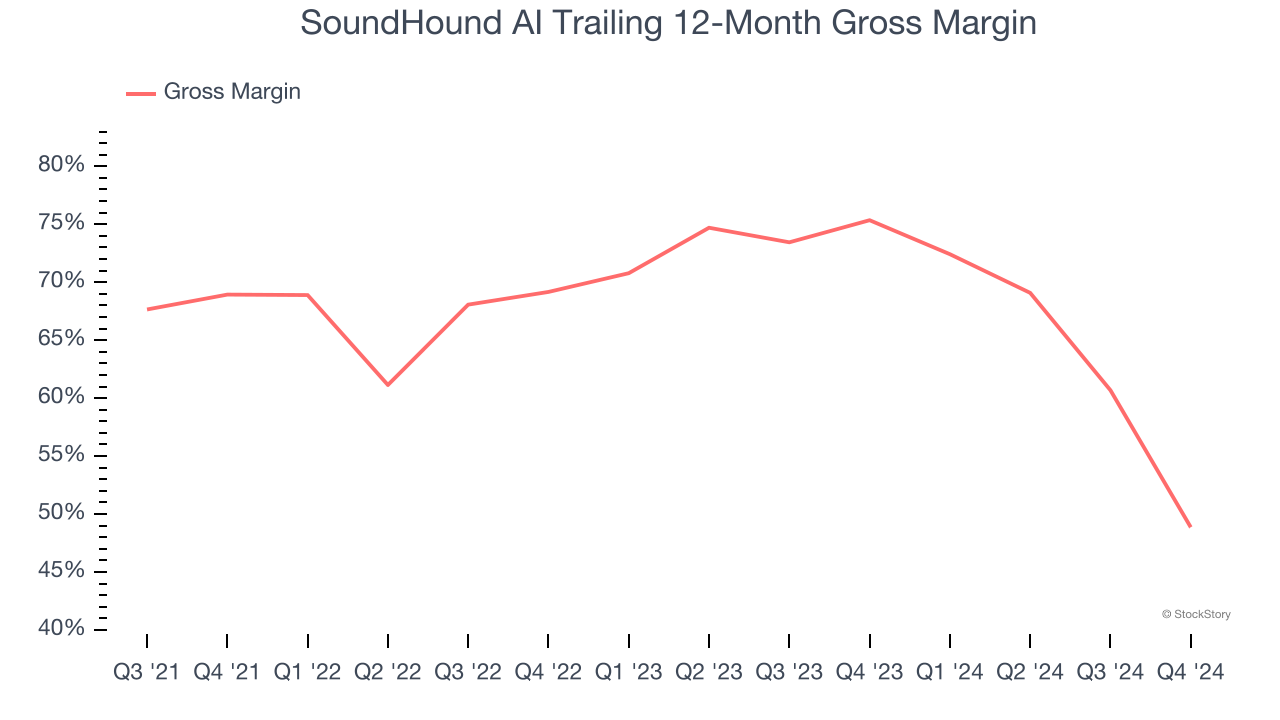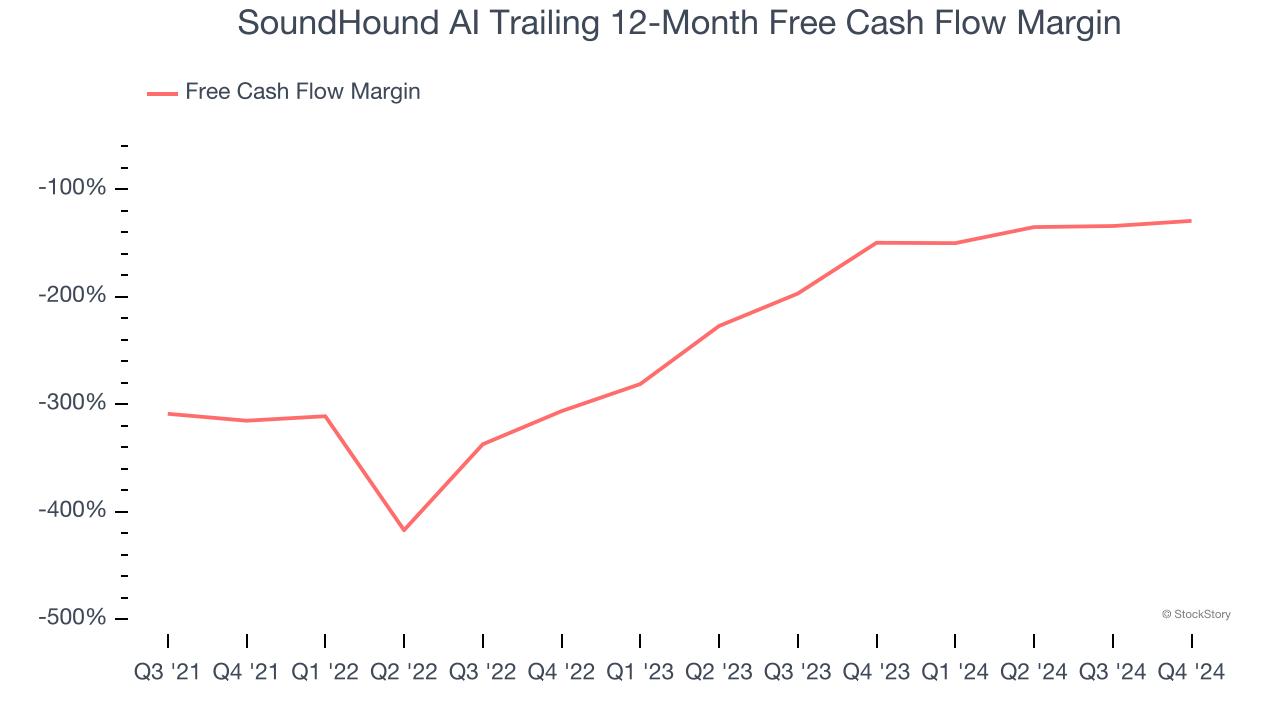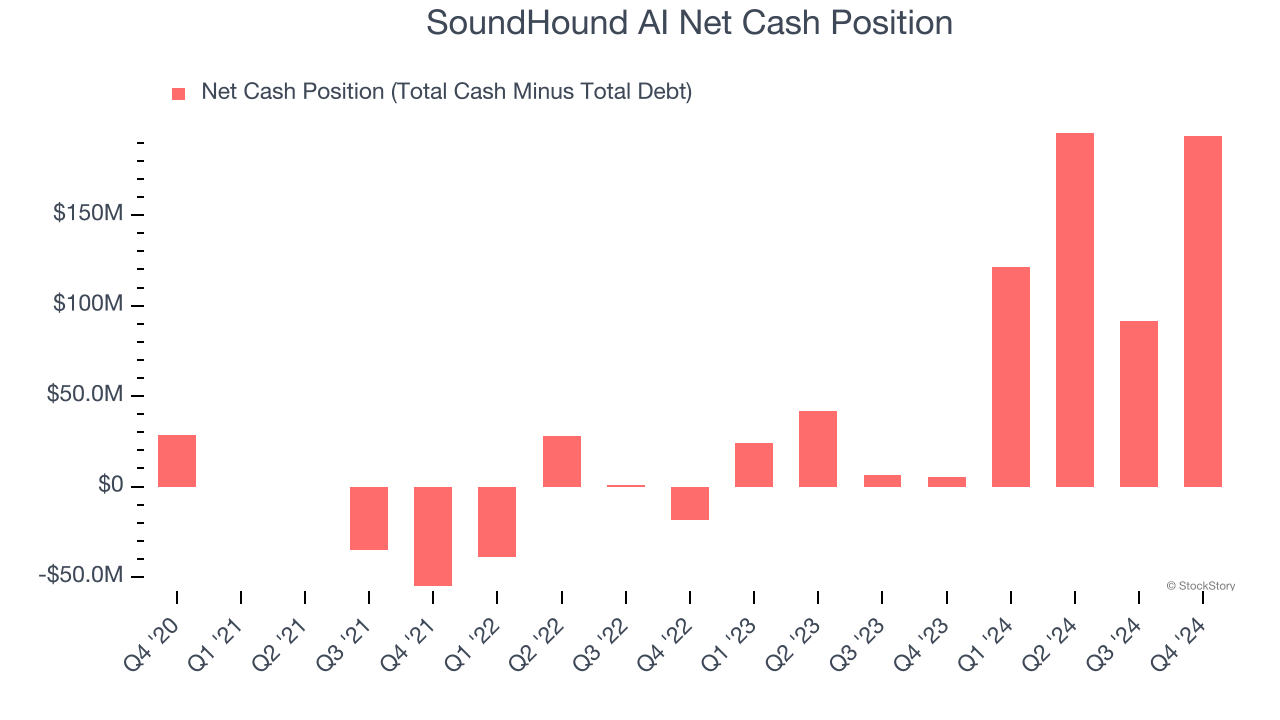
SoundHound AI has been on fire lately. In the past six months alone, the company’s stock price has rocketed 54.8%, reaching $8.22 per share. This was partly due to its solid quarterly results, and the run-up might have investors contemplating their next move.
Is now the time to buy SoundHound AI, or should you be careful about including it in your portfolio? Check out our in-depth research report to see what our analysts have to say, it’s free.
Despite the momentum, we're cautious about SoundHound AI. Here are three reasons why we avoid SOUN and a stock we'd rather own.
Why Is SoundHound AI Not Exciting?
Founded in 2005, SoundHound AI (NASDAQ:SOUN) develops independent voice artificial intelligence solutions that enable businesses across various industries to offer customized conversational experiences to consumers.
1. Low Gross Margin Reveals Weak Structural Profitability
For software companies like SoundHound AI, gross profit tells us how much money remains after paying for the base cost of products and services (typically servers, licenses, and certain personnel). These costs are usually low as a percentage of revenue, explaining why software is more lucrative than other sectors.
SoundHound AI’s gross margin is substantially worse than most software businesses, signaling it has relatively high infrastructure costs compared to asset-lite businesses like ServiceNow. As you can see below, it averaged a 48.9% gross margin over the last year. That means SoundHound AI paid its providers a lot of money ($51.14 for every $100 in revenue) to run its business. 
2. Cash Burn Ignites Concerns
If you’ve followed StockStory for a while, you know we emphasize free cash flow. Why, you ask? We believe that in the end, cash is king, and you can’t use accounting profits to pay the bills.
SoundHound AI’s demanding reinvestments have drained its resources over the last year, putting it in a pinch and limiting its ability to return capital to investors. Its free cash flow margin averaged negative 129%, meaning it lit $129.31 of cash on fire for every $100 in revenue.

3. Short Cash Runway Exposes Shareholders to Potential Dilution
As long-term investors, the risk we care about most is the permanent loss of capital, which can happen when a company goes bankrupt or raises money from a disadvantaged position. This is separate from short-term stock price volatility, something we are much less bothered by.
SoundHound AI burned through $109.5 million of cash over the last year. With $198.2 million of cash on its balance sheet, the company has around 22 months of runway left (assuming its $4.35 million of debt isn’t due right away).

Unless the SoundHound AI’s fundamentals change quickly, it might find itself in a position where it must raise capital from investors to continue operating. Whether that would be favorable is unclear because dilution is a headwind for shareholder returns.
We remain cautious of SoundHound AI until it generates consistent free cash flow or any of its announced financing plans materialize on its balance sheet.
Final Judgment
SoundHound AI’s business quality ultimately falls short of our standards. Following the recent surge, the stock trades at 19.6× forward price-to-sales (or $8.22 per share). This multiple tells us a lot of good news is priced in - we think there are better opportunities elsewhere. We’d recommend looking at the most dominant software business in the world.
Stocks We Would Buy Instead of SoundHound AI
The market surged in 2024 and reached record highs after Donald Trump’s presidential victory in November, but questions about new economic policies are adding much uncertainty for 2025.
While the crowd speculates what might happen next, we’re homing in on the companies that can succeed regardless of the political or macroeconomic environment. Put yourself in the driver’s seat and build a durable portfolio by checking out our Top 6 Stocks for this week. This is a curated list of our High Quality stocks that have generated a market-beating return of 175% over the last five years.
Stocks that made our list in 2019 include now familiar names such as Nvidia (+2,183% between December 2019 and December 2024) as well as under-the-radar businesses like Comfort Systems (+751% five-year return). Find your next big winner with StockStory today for free.
